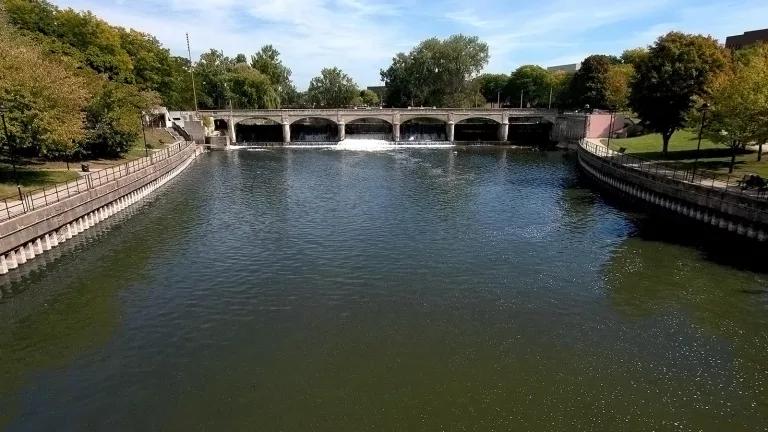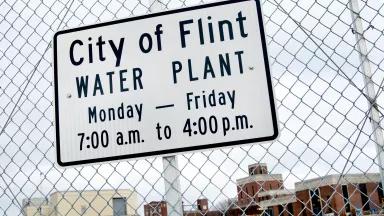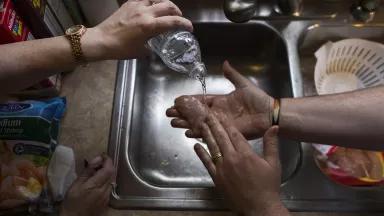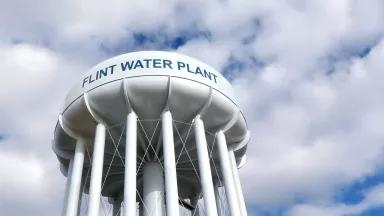Fighting for Safe Drinking Water in Flint
Partnering with NRDC and ACLU, residents of Flint, Michigan took their local government to court in a battle for safe drinking water.

Adam Stoltman/Alamy Stock Photo
On April 25, 2014, officials looking to save money switched Flint, Michigan’s drinking water supply from the Detroit city system to the Flint River. This new water was highly corrosive. Because city and state officials broke federal law by failing to treat the water properly, lead leached out from aging pipes into thousands of homes.
Soon after the switch, Flint residents complained about dark-colored, foul-tasting, smelly water as well as skin rashes and hair loss. Independent tests found that a significant proportion of samples had lead levels well above the “action level” for lead set by the U.S. Environmental Protection Agency. In fact, some samples showed lead levels more than 100 times the action level. Some 9,000 children, who are particularly sensitive to lead and its effects, were exposed to contaminated water.
As more and more citizens voiced their concerns, state officials were “callous and dismissive,” according to a report by the independent Flint Task Force in October 2015. Government officials acknowledged a problem only after residents elevated public awareness and garnered national attention, but unfiltered tap water remained unsafe to drink, and not enough was being done to ensure that all Flint residents had safe drinking water at home.
In January 2016, Concerned Pastors for Social Action, Flint resident Melissa Mays, NRDC, and the ACLU of Michigan filed a lawsuit to help address the lead contamination crisis and secure safe drinking water for the Flint community. The parties did not ask for monetary damages.
Later in 2016, the federal court ordered Michigan state officials and the City of Flint to ensure that every Flint home had access to safe drinking water. Until that point, the burden of tracking down safe drinking water daily had been on residents. The court determined the government was responsible for providing Flint homes with bottled water delivery unless it was verified, on a regular basis, that the home has a properly installed and maintained faucet filter, or the home declined delivery.
Despite this ruling against them, the City and State refused to comply. Then, in 2017, the groups entered into a settlement agreement that is enforceable by a federal court. Under the agreement, the City must find and remove Flint’s lead and galvanized steel water service lines by 2020. The State of Michigan must give the City up to $97 million to pay for this work. The agreement also included a program to help people in Flint install water filters and requires broad tap water testing to measure the amount of lead in Flint’s water. In February 2019, the agreement was amended to require the City to use a more efficient method to find the remaining lead service lines.
NRDC attorneys and our partners will continue to remain vigilant until the City finishes the work required under the agreement. Although it does not provide all of the justice residents deserve, we believe replacing the pipes is an important step towards making Flint’s tap water safer.
Downloads









